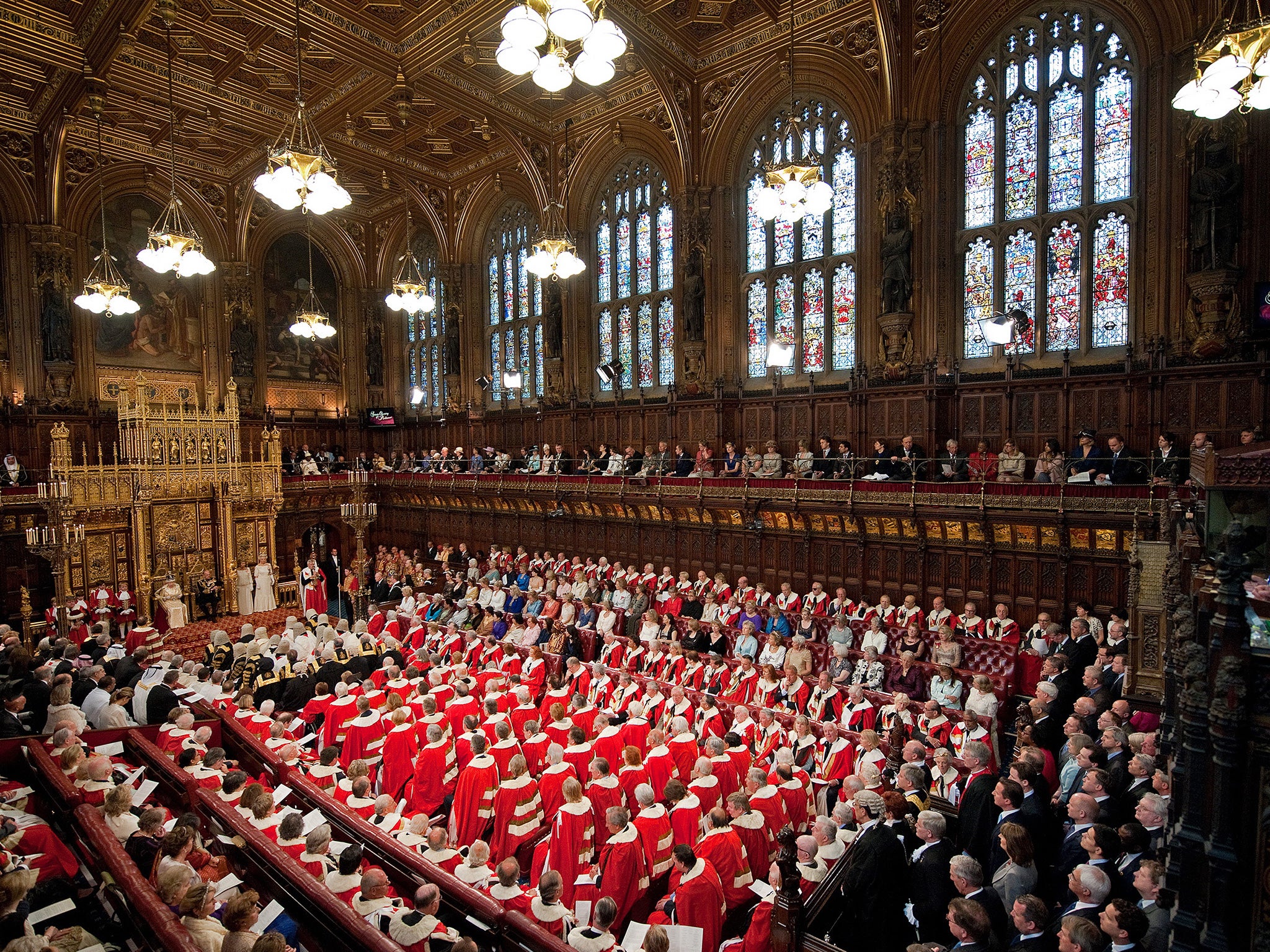One fifth of peers 'could be sacked from House of Lords'
Proposal to be put forward by Lord Strathclyde, asked by David Cameron to look into power of the Lords after it scuppered tax credits cuts

Your support helps us to tell the story
From reproductive rights to climate change to Big Tech, The Independent is on the ground when the story is developing. Whether it's investigating the financials of Elon Musk's pro-Trump PAC or producing our latest documentary, 'The A Word', which shines a light on the American women fighting for reproductive rights, we know how important it is to parse out the facts from the messaging.
At such a critical moment in US history, we need reporters on the ground. Your donation allows us to keep sending journalists to speak to both sides of the story.
The Independent is trusted by Americans across the entire political spectrum. And unlike many other quality news outlets, we choose not to lock Americans out of our reporting and analysis with paywalls. We believe quality journalism should be available to everyone, paid for by those who can afford it.
Your support makes all the difference.A fifth of peers could be sacked from the House of Lords, under proposals to be put forward by a review of the second chamber commissioned by the prime minister in response to the government’s defeat on tax credit cuts.
Around 165 of the 822 active members of the Lords would go under the plans, being drawn up for David Cameron by the former leader of the upper house, Lord Strathclyde.
The Conservative peer’s report is also thought likely to recommend that the Lords should not be able to veto changes to secondary legislation, reported to be the central recommendation of his report.
A 20 per cent “hair cut” to the number of peers would require the main parties to stage internal elections to choose which of their members of the House of Lords can remain. Hereditary peers have been chosen by elections since Tony Blair’s government cut their numbers in 1999.
The cut to the number of peers is expected to be mooted for further consideration in Lord Strathclyde’s report, set to be delivered to Mr Cameron just before Christmas.
A source familiar with the review told the Sunday Telegraph: “If it is a signal to the House of Lords to behave responsibly that would be a great thing.”
Many in the Government were outraged when the House of Lords blocked the Chancellor, George Osborne’s flagship £4bn tax credit cuts. Minister claimed it had sparked a “constitutional crisis” by breaking the convention that financial measures approved by the House of Commons should not be blocked by the second chamber.
But peers said that it was not clear it was a financial measure, and that the cuts could be blocked because they were not contained in primary legislation.
Mr Osborne reversed the cuts in last week's autumn statement, though those on low incomes could still eventually lose out when they are moved on to the new universal credit programme.
Baroness Smith, Labour's leader in the Lords, said: "Labour peers have consistently called for a reduction in the size of the house. Our backbench working group did this in its 2014 report on Lords reform, and we have done so on multiple occasions in debates with the Lords leader. Not least to raise concerns about Mr Cameron packing the House with new peers or threatening to do so when things don't go his way.
"Independent analysis from University College London confirms what we long knew, that the prime minister has appointed people to the house at a faster rate than any of his predecessors – and in the most politically partisan way. You have to wonder if this new plan to cut numbers is another clumsy attempt to skew votes in his favour.
"The prime minister must also look at the proposals that Labour and others have put forward for a constitutional convention to address a broad range of related issues at the same time, rather than continue down the route of ad hoc piecemeal change."
Join our commenting forum
Join thought-provoking conversations, follow other Independent readers and see their replies
Comments